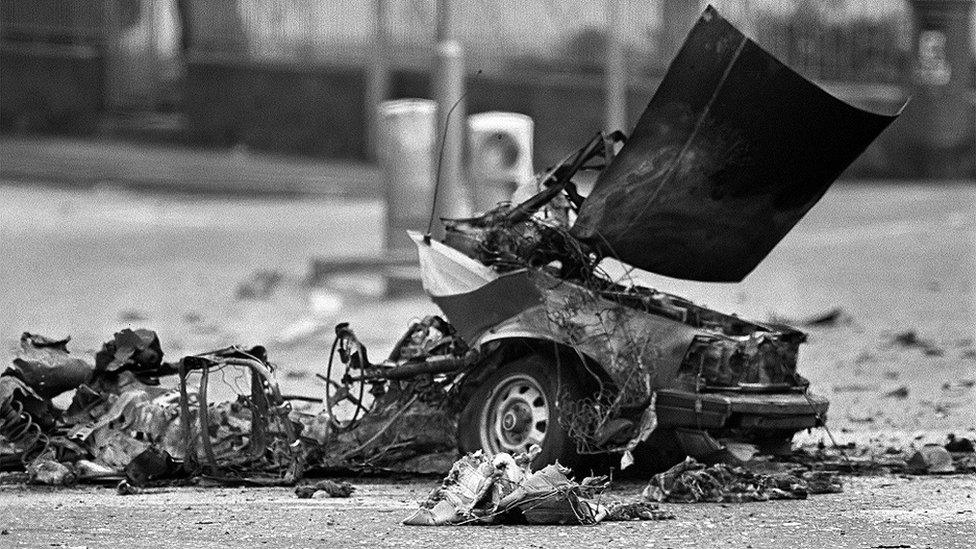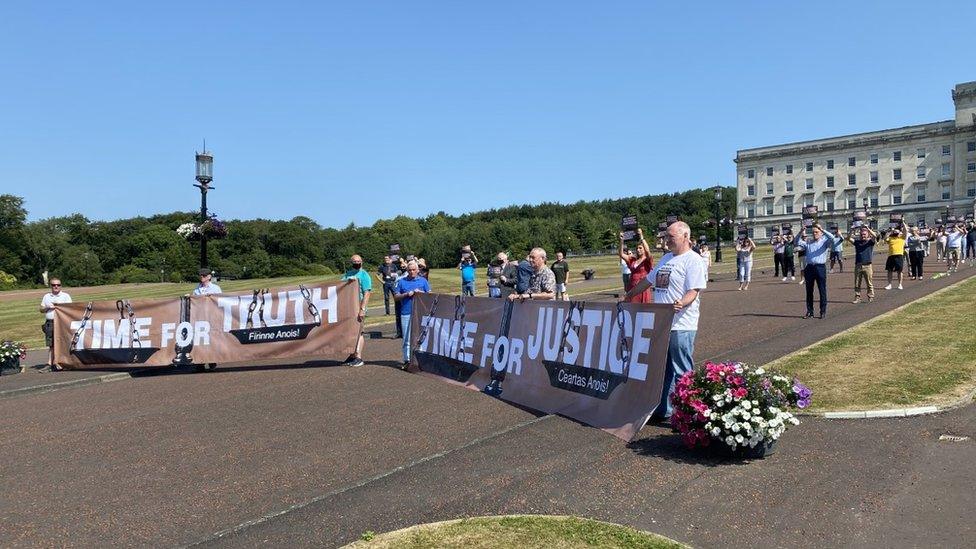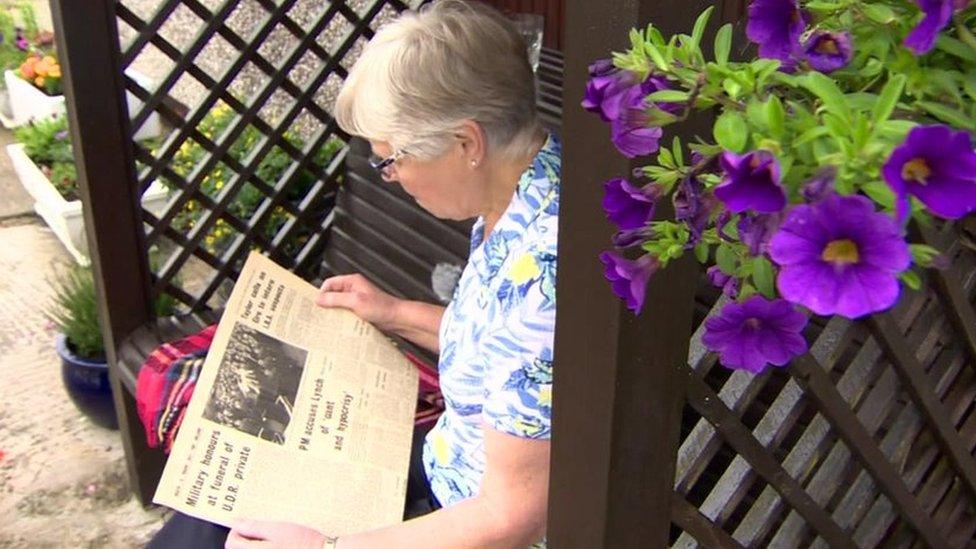United Nations experts voice concern over Troubles legacy plan
- Published

Experts appointed by the United Nations have expressed "serious concern" over UK government proposals for dealing with the legacy of the Troubles.
In July, the government confirmed it intended to bring forward legislation to ban Troubles-related prosecutions.
In a statement, the UN said the plan placed the UK in "flagrant violation of its international obligations".
It has been criticised by some Troubles victims' groups and politicians as a "de-facto amnesty."
Two independent experts appointed by the UN Human Rights Council said it "would effectively institute a de-facto amnesty and blanket impunity for the grave human rights violations committed during that period".
The experts are Fabián Salvioli, UN special rapporteur on the promotion of truth, justice, reparation and guarantees of non-recurrence, and Morris Tidball-Binz, special rapporteur on extrajudicial, summary or arbitrary executions.
The plans were announced in July by NI Secretary Brandon Lewis.
He outlined a "statute of limitations, to apply equally to all Troubles-related incidents".
It is understood it would apply to former members of the security forces as well as ex-paramilitaries.
A statute of limitations is a law which prevents legal proceedings being taken after a certain period of time.
The plans also include an end to all legacy inquests and civil actions related to the conflict.
However the UN experts said Mr Lewis "justified the measures by stating criminal justice can impede truth, information recovery and reconciliation."
They said criminal justice was an "essential pillar of transitional justice processes."

Some victims campaigners and Sinn Féin assembly members gathered at Stormont after the proposals
They added that the elements of a transitional justice approach - truth, justice, reparation, memorialization and guarantees of non-recurrence - "cannot be traded off against one another in a 'pick and choose' exercise".
"The proposed plan does not seem to include measures for establishing the full extent of the truth about the human rights violations perpetrated during the Troubles and about the circumstances, reasons and responsibilities that led to them," said the experts.
In July Northern Ireland assembly members (MLAs) voted to oppose the UK government's proposals.
Northern Ireland's five main political parties have all criticised the suggestion of a blanket ban on prosecutions for Troubles-era offences, as has the Irish government and several victims' groups.
Related topics
- Published9 August 2021
